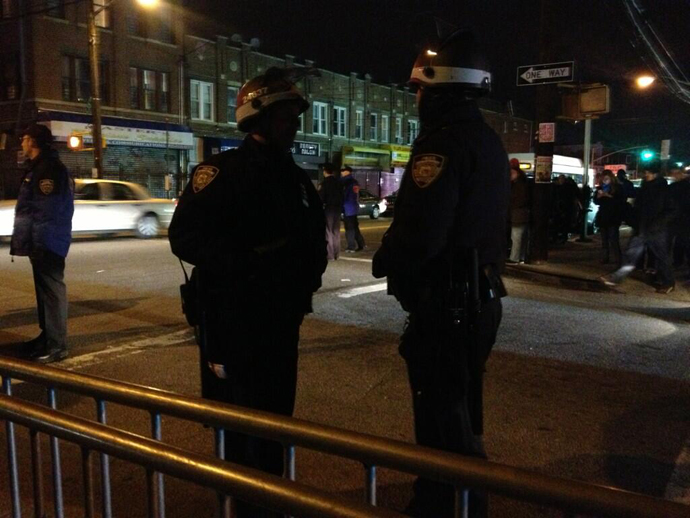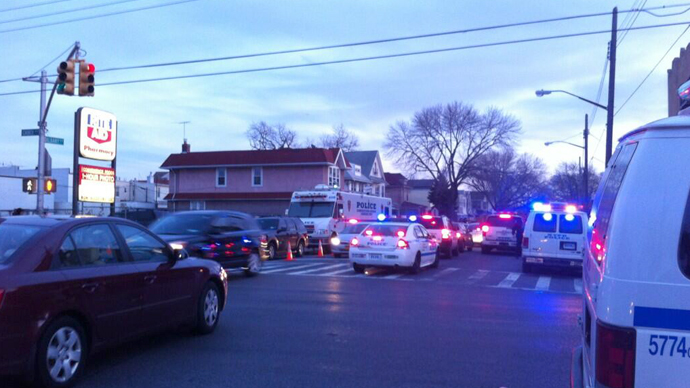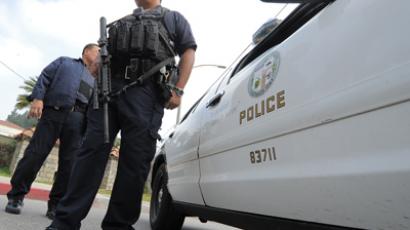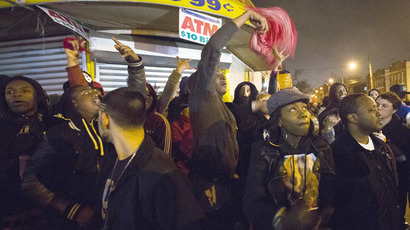‘How do you spell racist? NYPD!’ : Brooklyn police brutality riots continue

New Yorkers have taken to the streets for a fourth day, marching through Brooklyn’s East Flatbush area over the police slaying of 16-year-old Kimani Gray last Saturday. Locals said the protests will continue until officers are brought to justice.
Protesters chanted “How do you spell racist? NYPD!” and
“They say get back, we say fight back!” at officers, who had
a heavy presence at the three-hour-long rally. “Stop killing our
kids,” yelled one woman through a loudspeaker.
Locals also commented on Thursday’s clashes, posting their
condolences on Twitter.
RT correspondent Anastasia Churkina spoke with community residents
prior to Thursday’s protests. “Locals say that there will be no
calm until justice is seen,” she said.
“People are angry. People are angry because this is not the
first time that there’s been killing in the neighborhood, and there
never seems to be justice, so I think that’s what we’re
unfortunately seeing people reacting to,” community leader
Bishop Orlando Findlayter told Churkina.
The Thursday demonstrations followed a Wednesday protest that saw
over 40 arrests in a march through East Flatbush, where Gray was
shot and killed by police on Saturday.

Carol Gray, Kimani’s mother, spoke out on Thursday against the killing and the ongoing rioting. “Two police officers shot down Kimani, and I only want justice for two police officers to be off the street before they hurt another young kid,” she told reporters, crying. “He was slaughtered, and I want to know why.”
However, she also denounced ongoing retaliatory violence against the police: “I don't condone any riots, any looting, any shooting, anything against any police officers.”
On Wednesday, 46 protesters were arrested after two suffered injuries – one to his hand, and another to his face. Originally, mourners had gathered to honor Gray’s memory, but a faction of the crowd became enraged, leading to clashes with riot police.
Gray’s autopsy report was released on Wednesday, indicating that the 16-year-old boy was struck by bullets seven times, three of which hit him from behind.
Thursday’s protests were much calmer, but a strong vein of resentment ran through the crowd over the police targeting of minorities.
The African-American teenager’s skin color has been cited as a possible reason for the shooting. An attorney for Gray's family, Kenneth Montgomery, told reporters that the police tend to treat black and Hispanic teenagers “in a manner that is paramilitary… It is a community that is under siege.
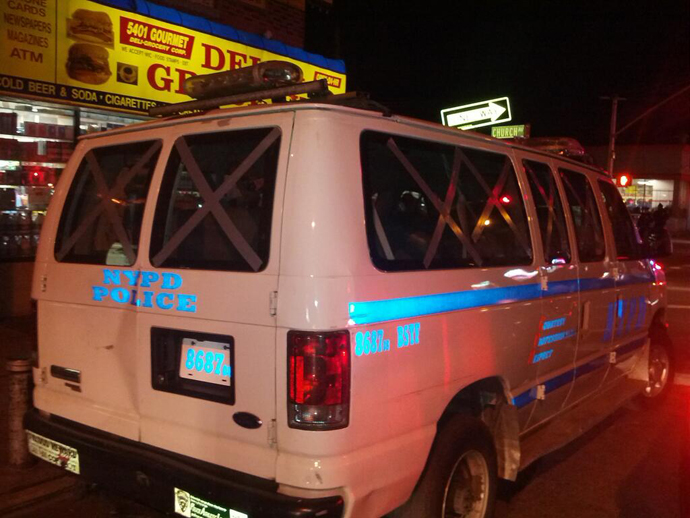
Demonstrations began on Monday,
two days after police shot Gray four times in the front and another
three times in the back after the teen had adjusted his belt
“suspiciously.” The officers involved in the shooting and
some witnesses claimed that Gray had brandished a weapon, while
others said Gray was not wielding a gun.
Carol Gray voiced skepticism that her son had been armed. He
was apparently attending a ‘Sweet 16’ birthday party that night,
and was too frightened of police to even contemplate aiming a gun
at them.
Gray was rushed to a hospital following the shooting, and was
declared dead on arrival. Police said there is no evidence that the
officers – who have not been identified – acted inappropriately,
though they have been placed on administrative leave. Police also
revealed Gray had an arrest record that included no convictions,
but charges for theft and inciting a riot.
The problem of police neglect – and even victimization of –
African-American communities is a much wider problem, according to
an organizer of Wednesday’s event. “The police department has
proven to be racially inattentive to black communities, and this
one is no different,” Rickford Burke told AP.
As with the last three marches through the neighborhood, media
outlets were virtually absent at the Thursday demonstrations,
leaving activists to do the bulk of reporting on social media and
livestreams.
